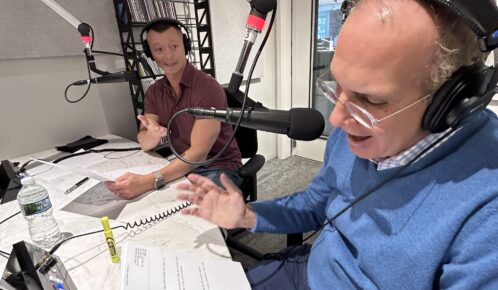This quick guide will help you learn about what to do if workers’ comp is denied to safeguard your rights. It can be an unpleasant shock to discover that your workers’ compensation claim has been denied. As you begin the process of recovering and rebuilding after an accident on the job, it is disturbing to hear a response of “no” from a claims administrator or insurance provider. This “no” is not the end of the story. You can work with a Chicago injury attorney to appeal your case. According to the Illinois Workers’ Compensation Commission, nearly 50% of appeals filed in 2012 resulted in a restoration of benefits.
Table of Contents

Why is a Workers’ Comp Claim Denied?
Many workers’ compensation cases in the state of Illinois are denied after the initial application for benefits. This can be alarming to workers, but it is a surprisingly common occurrence. There are many causes for the high frequency of denial. These include the increasing prevalence of fraudulent cases, negligence on the part of employers, insufficient information in workers’ appeals or the possibility of errors made by insurance adjusters. As health care costs continue to rise, many providers are cautious about offering care to employees who have allegedly been injured at work. If there are apparent holes in the case or inconsistencies in the report, a claims administrator may deny benefits until further proof is assembled.
Don’t panic if your case is initially denied
Initial denial of workers’ compensation is a serious matter, but it is not a cause for panic. Injured workers have the opportunity to appeal their cases if benefits are limited or denied. By learning more about the appeal system and how to prepare for it, you can protect your rights and the rights of your family. A Chicago workers’ comp attorney can help you navigate through the process.
How does a workers’ compensation appeal proceed through the system?
If you are dissatisfied with the initial decision on your workers’ compensation case, you have the right to appeal it through some or all of the following stages:
- All workers denied compensation in the state of Illinois may bring their cases to an arbitrator appointed by the Illinois Workers’ Compensation Commission.
- If the arbitrator’s decision is unsatisfactory, workers can appeal to a three-person panel of IWCC commissioners.
- If the panel denies benefits, the injured worker can appeal the case further to the state’s Circuit Court and Appellate Court.
- If all of these appeals are unsuccessful, injured workers can take their cases all the way to the Illinois Supreme Court.
The latter stages of this process are relatively infrequent. Most cases involving on-the-job injuries are resolved before they go to the highest legal authorities in the state. The Illinois Supreme Court issues only a few workers’ compensation opinions each year.
What are the Chances of Winning a Workers’ Comp Appeal?
As soon as a compensation claim is denied, workers should begin preparing for the appeal process. This is a twofold effort: the injured worker should assemble all the available evidence and avoid all statements or activities that may compromise the case. By paying close attention to both of these principles, workers can increase the chance of a successful appeal.
Assembling evidence for your case
Arbitrators and commissioners will examine your case closely if you choose to appeal a negative workers’ compensation decision. The burden of proof is on the injured worker to show that the health issue is directly job-related and not the result of a pre-existing condition or a fraudulent claim. Take the time to assemble all the evidence you can find. Speak with supervisors and co-workers about the circumstances of the injury or illness. Get testimony from emergency first responders, doctors, nurses, and other medical professionals who treated you in the aftermath of the accident. Photographic evidence can be a valuable part of a workers’ compensation appeal. Obtain pictures of the area where you were injured and any equipment that might have been involved in the incident. If work conditions were unsafe at the time, make an effort to document them fully.
Dangers to avoid while appealing a workers’ compensation case
It is advisable to speak with a Chicago injury attorney before making any kind of statement about a current workers’ compensation case. By seeking legal aid, you can protect your best interests and avoid anything that might affect the final decision. Many injured workers have damaged their own appeals by speaking indiscreetly about their medical history or making disparaging remarks about their employers. Do not discuss your injury with anyone, even close friends, without consulting a legal professional first. Although commissioners and arbitrators are bound to conduct a good-faith investigation into the causes of your injury, they can and will use any negative evidence to discredit your claim.
Patience is key during the appeal process
Many workers’ compensation appeals in the state of Illinois can take considerable time and effort. Patience is key during the process. If your case is rejected at a lower level, you have the right to pursue it at a higher level, even as far as the state’s Supreme Court. By seeking assistance from a Chicago injury attorney, you can increase your chances of a successful appeal. Contact a workers’ compensation lawyer today to find out more about what to do if workers’ comp is denied.
Additional Posts About Workers’ Compensation Benefits
- Can Workers’ Compensation Death Benefits Be Granted to a Decedent’s Estate?
- How Long Does It Take Workers’ Comp to Approve Surgery?
- Workers’ Compensation Investigations and What They Look for
- What Questions Are Asked at a Workers’ Comp Hearing?
- What Not To Say To A Workers’ Comp Doctor
- 4 Tips on How to Handle a Workplace Injury



